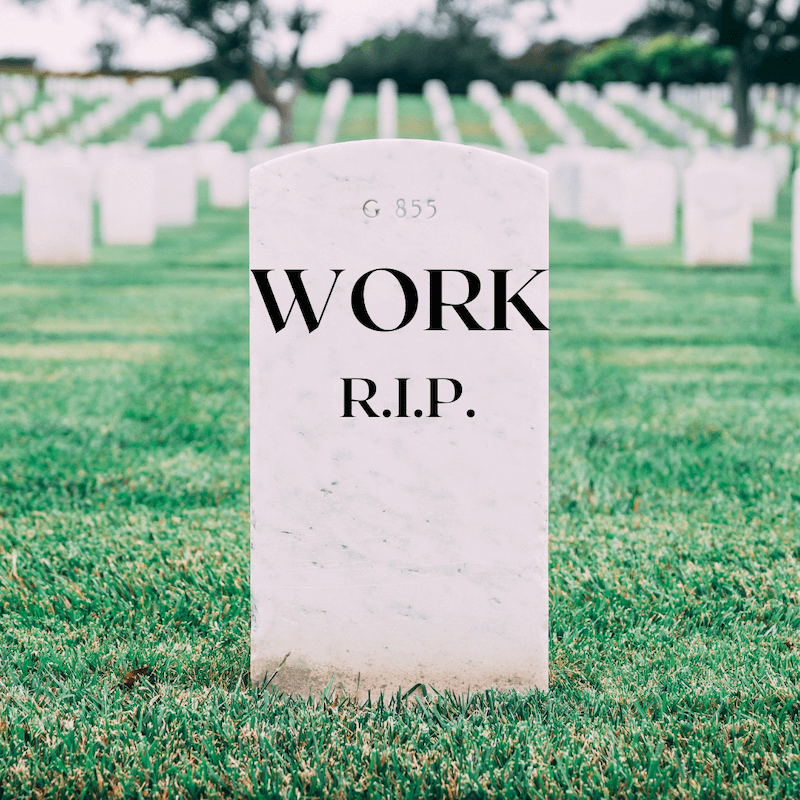‘Unsplash photo by Matt Botsford’
Have you seen this “Help Wanted” ad?
Stress-free position with leisurely pace (more tortoise than hare). Make your own office hours. Better yet, stay home, we trust you (not that we have a choice at the moment; just because we’re paying you doesn’t mean we have a right to tell you what to do). Amenities include gourmet meals (on us!) that you choose from a haute cuisine menu (includes speedy home delivery for our starving WFH employees who are too busy working to go grocery shopping). Apply for this position whenever the mood moves you. References are optional. We can’t wait for you to interview us– uh, we mean for us to interview you! (but you can understand why we’re confused right now about who works for who).
Not long ago – like in 2019 – a job posting like that would sound like a comedy sketch from Saturday Night Live. Today, it could be mistaken for an actual posting on a real job website.
The working world, as we recover from the two-year social upheaval caused by the pandemic, has been turned upside down.
Employers continue to come up short looking to fill positions – for both skilled positions and entry-level jobs. As a result, workers have gained leverage. Employees are offered perks like working from home (WFH), free meals in the office, generous paid-time-off (PTO) policies, and recreational amenities in the office to make work breaks as fun and relaxing as possible. Companies like LinkedIn and Marriott are investing in upgrading their workspace to retain and attract top talent.
Where have all the workers gone? I don’t mean workers only in the sense of a body performing a function. There’s a lot of those people around; too many, in fact. It’s led to a new, bizarre euphemism: “quietly quitting” (QQ). It also goes by aliases like “anti-hustle” and “act your wage.”
50% ARE QUITTERS
QQ, which started in the second half of 2021, means doing just enough to hold on to your job, but no more than the bare minimum. A poll by Gallup has reported that as many of 50% of workers are “disengaged.” It also says that up to one-third of the workforce performs their job remotely. If you work from home, how can you not be disengaged – or at least distracted in a way you wouldn’t be in a formal office setting? If you’ve never heard of “proximity bias,” you should know about it. It means those physically closest to managers will get the most attention and opportunities for advancement.
Some jobs can be performed effectively at home, and some people are disciplined and motivated enough to maintain high productivity and performance while WFH. Those are the exceptions, not the rule.
The kind of workers in shortest supply today are people with burning ambition. Somebody who’s not afraid to work. Somebody who doesn’t make excuses for why their so-called “work-life balance” is more important than building a career.
We’re told that young workers value their free time more than earning power. The false narrative that prioritizes “work-life balance” as a rallying cry tries to convince us that too much work is bad for quality of life. I disagree. By working as hard as you can now, summoning youthful energy and ambition, you can build a successful career and a comfortable later life without selling your soul to your employer or sacrificing your personal life.
Despite that, we have young workers who recoil at the sight of job descriptions that include buzzwords such as “fast-paced,” “work hard, play hard,” “willing to wear many hats.”
OPPORTUNITY KNOCKS
“Work-life balance” warriors look at those words and become suspicious that they will be taken advantage of and worked to the bone, without fair compensation. By sharp contrast, opportunistic workers look at those words and see … opportunity!
I’m not taking one side here against the other. I can see different angles of the problem. Weak leadership absolutely can result in worker exploitation. I notice it when we’re out dining, which is often. Restaurant workers and others in service industries that I patronize could be treated better than what I’ve witnessed.
Worker exploitation is not everywhere, but it’s not acceptable wherever it is. I understand the wisdom of looking out for yourself and being cautious about entering new work experiences. That’s logical. Management has to bear its share of the burden for why so many workers are fed up and it’s up to management to correct the QQ trend, which has started to happen.
Some workers take QQ too far, though, and they hurt their own case with poor judgment.
When I recently interviewed a candidate for a high-paying position, the person mentioned enjoying their “3/2” schedule. “Your what?” I asked. When I learned 3/2 was shorthand for working at home three days a week and in the office two days a week, it struck me (and not in a good way) that they thought nothing of bringing that up in a job interview, as if I should be impressed by their 3/2 work ethic. They were saying that to the wrong person. That’s how drastically things have changed in the workplace – it’s considered acceptable telling a prospective employer you look forward to not coming to the office three days of every week. Wherever I worked, I looked forward to going to the office every day and wanted my employees to feel the same.
RETURN TO OFFICE
I also recognize that workplace innovations like 3/2 schedules signify that the two sides are coming together more on compromises as there’s an effort by employers to lure people back to the office without making it seem punitive. That’s encouraging.
However, if someone feels they are being forced to return to the office, that’s not encouraging. They should look for another job that is more receptive to their WFH orientation. It’s going to take mutual respect for workers and management to come back together so that quietly quitting loses its momentary appeal. As one hiring manager said, “The pandemic has changed not only how we work, but how we think about work.” Or, for some, not think enough about work.
In that sense, there still are attitude challenges to be addressed. In the “old” days, an employer providing workers with free mid-day or nighttime meals would be appreciated. Today, that’s not going far enough, at least as far as hard-core WFH practitioners are concerned. There are instances where they expect free meals to be delivered to them at home if the WFOers are getting free meals paid for by the company. Uber Eats or bust, baby!
My reaction to the QQ syndrome is based on having managed hundreds of people in a corporate headquarters and thousands of people in 1,200 stores throughout the United States, during a decades-long career as a CEO.
My workstyle was not to boss people around as a power trip. My singular focus was the day–to-day success and long-term growth of the company. That meant I needed our associates to be in the best frame of mind all day every day. That, in turn, meant I had to continually demonstrate my concern for their welfare.
BOSS AS THERAPIST
I had to lend an ear to their challenges and their desires. I had to be their confidant and their therapist when they were experiencing bouts of anxiety or self-doubt or had complaints about their supervisors. How many of today’s corporate leaders bring that level of empathy to work every day? Post-pandemic, people are starved more than ever for mentoring and leadership.
The reason we’ve reached this standoff between workers and management is not solely because of the workers’ disenchanted attitude. That’s definitely a big part of it, thanks to the pandemic changing the mentality of especially younger workers. We are dealing with almost three years’ worth of entry-level workers for whom working from home is the natural state of things and working from an office is abnormal.
There’s a difference between coddling employees – which the most vocal advocates of QQ seem to demand – and nurturing them, which is what management is supposed to be to develop its talent in a way that benefits the bottom line.
The wave of QQ has become so prevalent – and worrisome – that beyond those wanting to take the rest of the day off, it feels as if once out of college, people already are thinking about taking the rest of their life off.
The problem, as I see it, starts with schooling. Once out in the world after graduation, younger workers are not looking to be challenged, even though that is the purpose and reward of work: To become smarter and more successful by facing and overcoming challenges. Our educators need to do a better job of preparing students for the real world of work. The expectations of entry-level professionals are out of sync with how companies operate. They need to understand that the isolation of the pandemic is not sustainable if they want a life of fulfillment.
SOFT SKILLS STRONG
Emotional intelligence guru Daniel Goleman says soft skills will continue to be more valued by hiring managers. Those are the very skills that are best demonstrated in person. It entails things like self-awareness, managing yourself, empathy and social presence. I’ve heard of people who can light up a room, but not someone who can light up a Zoom.
As for hands-on skills, an increasing number of those can be replicated by artificial intelligence. It used to be that the most repetitive practices – such as accounting – were said to be susceptible to obsolescence in the future by AI. But computers (and the people who program them) are getting more ambitious – even as human workers in cubicles are getting less ambitious. It’s as if artificial intelligence wants to be challenged more than human intelligence.
Now we’ve entered an economically precarious period that is causing a rising tide of layoffs. The situation at hand will favor those who’ve returned to the office on a regular basis, which indicates they are more motivated than WFH employees. People who want to remain in isolation will fall out of step as a market correction moves office work back into the mainstream.
That will take years to happen, but the question is whether, by then, the WFH extremists will be bound for a life of success, or be forever homebound, replaced by a hard-working, super-smart AI who puts in quality time at the office every day and doesn’t expect free meal delivery at home.
Which kind of worker are you now – and where will you be working five years from now?
That is, if, by then, you’re not quietly fired.

